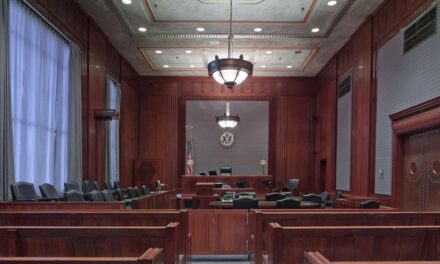Threa Almontaser | Correspondent
Actress and television personality Raven Symoné, best known for her hit Disney television series “That’s So Raven,” comments drew criticism nation-wide last week when she discussed a study about how Americans make racist assumptions based on people’s’ names.
On “The View” where Symoné is currently a co-host she said, “I am very discriminatory…I’m not about to hire you if your name is Watermelondrea, it’s just not going to happen, I’m not going to hire you.”
“Raven was in a position to advocate against it, but she voiced her hypocritical opinion instead,” said Aubrey Lewis, a junior studying French. “I definitely think…that people are wrongly discriminated against by something as simple as their name.”
Lewis’s stepmom is part Colombian. She grew up with the last name Gutierrez before marrying her dad and gaining the last name Lewis. Aubrey’s mom faced a lot more harsh judgment against her working as a nurse with Gutierrez for a last name. Aubrey said her mother still remembers being in her early 20s and not having recognition in her career, only getting chosen for the smaller jobs, no matter how much skill she possessed.
Economist Marianna Bertrand from the University of Chicago conducted a study in 2003 where her team sent out thousands of resumes to employers, specifically choosing African-American based names like “Jamal” on some and common white names like “Brendan” on others. Results proved that, “The same résumé was roughly 50 percent more likely to result in a callback for an interview if it had a ‘white’ name.” Even though the résumé’s mailed out were basically identical, the conclusions were different because of the main manipulated factor of names.
“It’s pretty obvious people are discriminated against with their names,” said Wyatt Bond, a senior studying MSL.“Even the most common names face it. Longer names are just more obvious and exposed to the discrimination.”
Bond views Symoné’s words as both economic and racial discrimination, “like upper-class black people would say they wouldn’t hire a Watermelondra either, so it’s a class and economic thing as well,” he said.
Nikita Chintalapudi, a junior studying Biology and English said though she doesn’t feel she faces as much negative stereotyping as people with African-American sounding names, but she’s experienced discrimination because of her name. She’s heard “wow that sucks, you should shorten it,” or people trying to use some crude bastardization of her name as a ‘joke’.
“People tend to hear my name, especially my last name, and make jokes about call centers or arranged marriages. While maybe not discriminatory, it’s degrading and annoying,” said Chintalapudi. “Plus, to me, what’s really upsetting about the whole controversy is that Symoné felt the need to play into the white bias against ethnic sounding names. Especially when she herself has likely had to face that same discrimination. It’s like, where’s your solidarity girl.”
To answer Shakespeare’s question, “What’s in a name?” There’s a lot. Names can determine more aspects in your life than just grade school nicknames or when you’ll be called during attendance.




